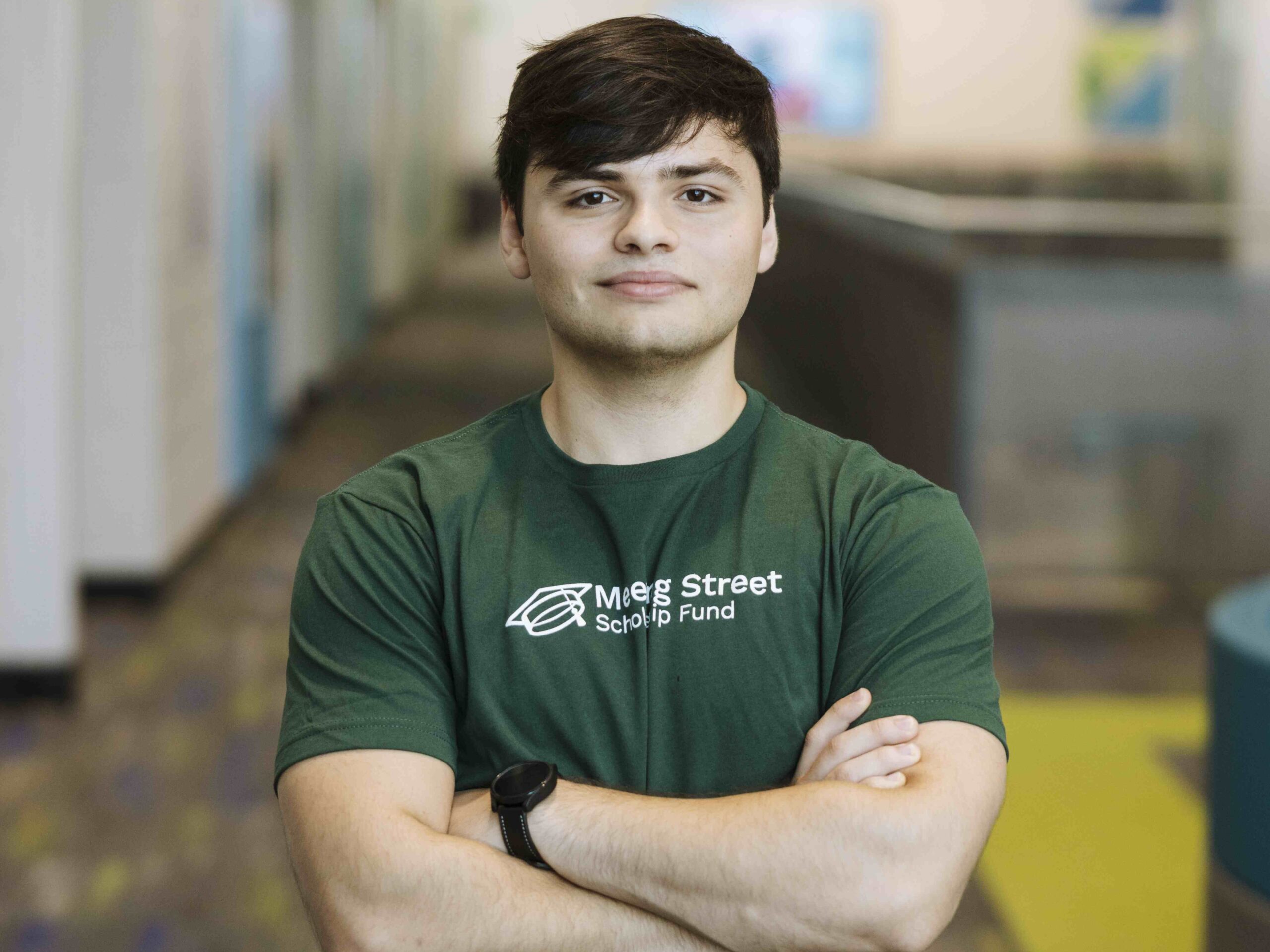October 1, 2024

Ask almost any college student what they regret packing, and you’ll likely hear about overstuffed closets or sentimental items such as a childhood stuffed animal.
Blaize Murphy’s answer? “Imposter syndrome.”
“Coming from my background, you really don’t fit in as well,” he said. “Because a lot of these kids, they kind of had their way paid for them. And you kind of feel like you’re Sisyphus pushing the boulder up the hill. You just feel out of place. You don’t come from the same background. You don’t click as easily, but you’re a hard worker. I think it would’ve helped me not to have imposter syndrome.”
That kind of thoughtful answer sums up Blaize, a junior majoring in accounting at the University of South Carolina at Columbia. His path to college hasn’t been easy, but as a first-generation college student, he’s making the most of his college education.
The Charleston native described his biological father as a “career criminal” and his biological mother as “not doing much.” As a result, Blaize was raised by his grandparents. His grandfather worked for the U.S. Post Office and his grandmother was a RN.
Neither earned a bachelor’s degree, and they raised Blaize with the mindset that he would go to college, no matter what. Because of the Meeting Street Scholarship Fund, Blaize didn’t have to take out big student loans.
“The Scholarship is an opportunity,” he said. “It’s not only financial support, but you get moral support from the people running the scholarship. I think it gives you the opportunity to say, ‘You know, I’m not an impostor. I’m comfortable.’”
Blaize has gotten comfortable with being uncomfortable, and he advises new college students to make themselves uncomfortable, too. That’s how he got involved on campus and found a way to do a study abroad program in Cuba on scholarship.
“Just making yourself uncomfortable will take you places you never thought you’d go,” he said.
The hardest part of college, he said, is not falling in with the crowd. He’s seen too many people, especially first-generation college students, get caught up in the crowd and eventually drop out, he said.
“Just go to class,” he said. “You miss so much not going and there’s a stark difference from those who go and don’t. So just go to class. It’s the best advice anybody’s ever told me.”
Going to college has afforded him more agency over his life, he said. He hopes to work for the IRS after he graduates and eventually open a small business doing taxes for other small businesses.
“Once you go off to college, you’re on your own,” he said. “You have a path, but you’re not required to stay on it. You’ve got the reins. You can take control of your life and do what you want – or do what you need to do rather.”